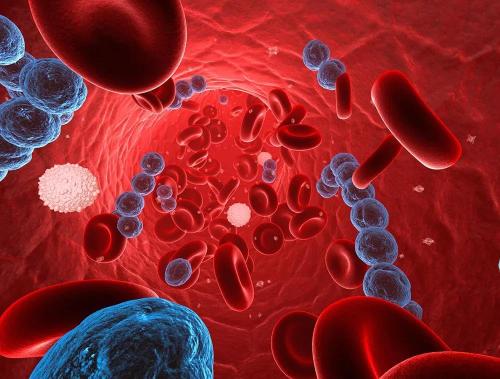Researchers at Duke University's medical research institute have recently discovered molecular links to microbial destruction during the onset of inflammatory bowel disease, such as triggering inflammatory bowel disease (IBD).
This research is dedicated to a unique biotechnology toolkit to understand why the microbiome changes during enteritis and how it triggers unhealthy inflammatory responses. These tools allow them to measure chemical changes in microbes, opening the door to new treatments in the future.
The intestinal microbiome is a community of trillions of microbes, including bacteria, viruses and fungi. Each person has their own unique microbiome, which studies have shown to play an important role in many diseases, including IBD.IBD affects more than 3 million people worldwide, and its incidence is rising. IBD is a chronic disease characterized by periods of remission followed by sudden onset during which the disease becomes active.
In the study, 100 participants were followed for a year and IBD patients were compared with a control group without the disease. The participants provided faecal samples once a week, blood samples once a quarter, and a set of colon biopsies for analysis at the start of the study. The samples were analyzed using molecular, cellular, and clinical tools to understand the detailed biochemical characteristics of the disease.
First, these detailed measurements make it easy to observe and confirm research findings, such as the loss of overall intestinal biodiversity, and the
What's more, IBD patients have fewer microbial-derived chemicals during disease activity, which they speculate may be the result of a combination of factors, including less metabolism of beneficial microorganisms, less absorption of nutrients, higher levels of water or blood in the gut, and more rapid bowel movement. These factors reduce the overall stability of the intestinal microbial ecosystem, leading to more improper immune responses and overreactions to normal intestinal microflora in IBD patients.
Specifically, patients with IBD had higher levels of polyunsaturated fatty acids during the active phase of the disease. The researchers also found that niacin was found almost exclusively in the faeces of IBD patients, who had particularly low levels of vitamins B2 and B3 in their intestines.
The team also found that bile acids, a group of compounds made by humans but chemically modified by gut microbes, are also destroyed during IBD, which is related to the molecular regulation of the microbiome.
Taken together, these findings provide a detailed comparison of microbiota in active and inactive disease states in patients with IBD to date. The results showed that different forms of IBD had different effects on the activity and composition of microflora. These findings offer promising new targets for the treatment of IBD, including polyunsaturated fatty acids, bile acid derivatives, and human immune response pathways, as well as new data that will enable future studies of IBD and the microbiome, the researchers said.








